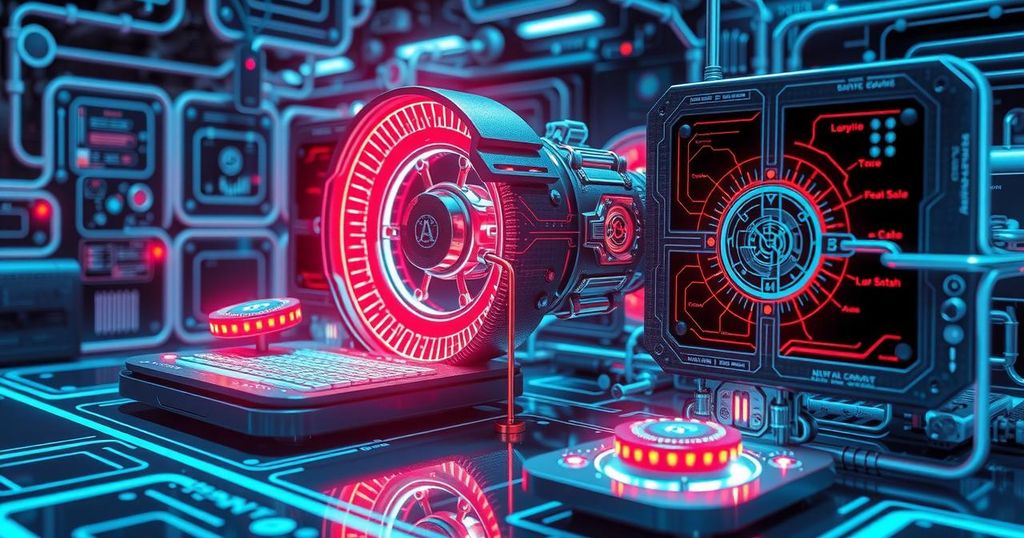Unveiling the Future: Emerging Technology Trends for 2025
As we approach 2025, emerging technologies such as AI, blockchain, and robotics are set to revolutionize various industries. Nearly half of organizations will adopt AI for decision-making, while financial institutions are exploring blockchain for secure transactions. Key advancements in biotechnology, voice interfaces, and edge computing will enhance productivity and personalization, making understanding these trends essential for navigating the evolving digital landscape.
As we plunge into 2025, the rapid evolution of technology paints a vibrant picture of innovation reshaping industries, where every leap propels businesses forward. Imagine a world where half of all organizations harness the power of AI for decision-making, creating competitive advantages and transforming productivity in ways that seemed like science fiction just a few years ago. The financial realm is witnessing a profound shift with over 75% of banks exploring blockchain, paving the way for secure transactions and fostering trust in a digital economy.
In this exploration, we navigate through the landscape of emerging technologies poised to redefine our future. These advancements, spanning from voice interfaces to biotechnology and robotics, are not merely trends but pivotal elements that will dramatically shape the workplace and daily life. For instance, the Scaled Agile Framework (SAFe) is empowering enterprises like Intel to streamline operations and accelerate time-to-market, showcasing adaptability in an unpredictable world.
The demand for tools to combat disinformation is also surging. With the proliferation of deepfakes, initiatives spearheaded by companies such as NewsGuard are emerging to uphold truth in media, preserving the sanctity of information. Moreover, biotechnology, particularly CRISPR, is revolutionizing healthcare by enabling practitioners to edit genes, offering hope to those with genetic disorders.
Meanwhile, the breathtaking interaction offered by voice user interfaces has transformed mundane tasks into delightful experiences. Devices such as Amazon Alexa seamlessly blend with our routines, ushering in a future where technology listens and responds intuitively. Coupled with immersive realities through augmented and virtual technologies, the way we learn, play, and connect is being enriched beyond imagination.
The financial world is getting a facelift with next-generation blockchain technologies, ushering in decentralized finance (DeFi) that eliminates the need for intermediaries, democratizing access to financial services. As industries recognize the limitless capabilities of robotics, next-gen robots are stepping into roles across manufacturing, hospitality, and healthcare, performing tasks with precision and easing human workloads.
Artificial intelligence isn’t merely about convenience; it’s redefining personalization across retail and healthcare sectors, tailoring experiences to individual needs. Meanwhile, edge computing is paving the way for immediate data processing, critical in autonomous driving scenarios where split-second decisions can mean the difference between safety and disaster.
As we ponder the future that lies ahead, it is evident that integrating these technologies into everyday life holds the key to solving global challenges and enhancing efficiency. By 2025, the tech landscape promises to be rich with opportunities, urging businesses and individuals alike to keep pace in this relentless race toward progress.
The exploration of emerging technologies reveals a world on the cusp of transformation. From AI and cybersecurity to biotechnology and decentralized finance, the convergence of these advancements is anticipated to reshape various sectors by 2025. Understanding the relevance of each trend helps highlight their potential impact on the global economy, demonstrating the need for organizations to adapt and innovate amidst rapid changes. This knowledge is crucial for professionals and businesses striving to maintain a competitive edge in a digital and interconnected world.
In conclusion, the horizon of 2025 is illuminated by a multitude of technological advancements that promise to redefine industries. As organizations prepare to embrace these changes, they must adopt an agile mindset and explore innovations such as AI, blockchain, and edge computing to remain relevant and competitive. The future is not merely about adopting technology; it’s about a strategic integration that transforms challenges into opportunities, crafting a smarter, more efficient world for everyone.
Original Source: securityboulevard.com




Post Comment